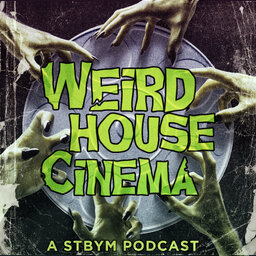Interview Interlude Playlist, Part 9: Carl Zimmer
Let's talk about heredity. Here's our 2018 chat with acclaimed science writer Carl Zimmer about his book “She Has Her Mother's Laugh: The Powers, Perversions, and Potential of Heredity.”
Learn more about your ad-choices at https://www.iheartpodcastnetwork.com
In 1 playlist(s)
Stuff To Blow Your Mind
Deep in the back of your mind, you’ve always had the feeling that there’s something strange about re…Social links
Follow podcast
Recent clips

Crab Bag, Part 3: The Crab is a Lonely Hunter
55:55

Weirdhouse Cinema Rewind: La Loba (1965)
1:30:07

From the Vault: Mystery Cults, Part 4
1:00:23
 Stuff To Blow Your Mind
Stuff To Blow Your Mind